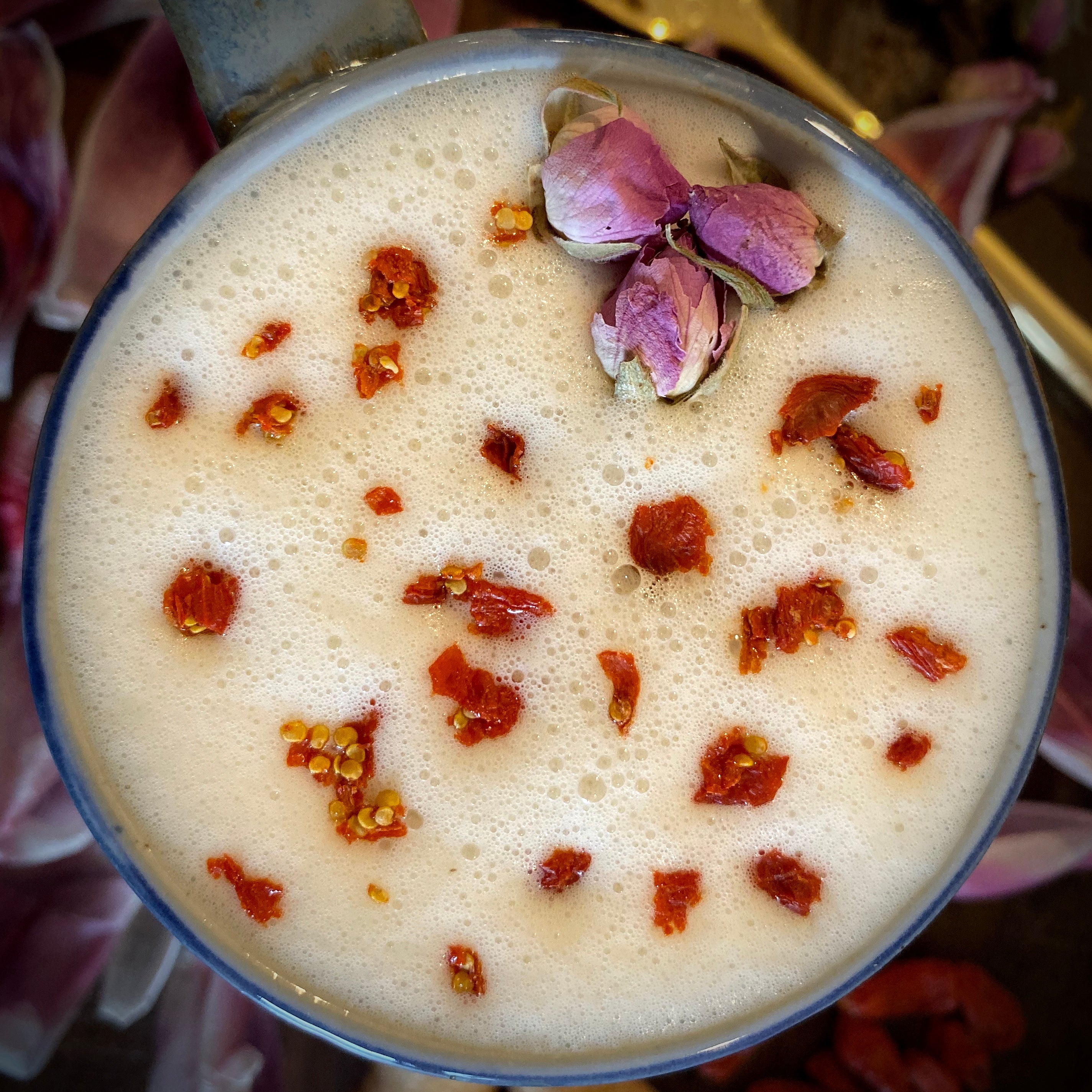December 06, 2019

Goji berries are one of the most well known Chinese herbs in the US. Used for over 2000 years in China, they were first mentioned in the Shen Nong Ben Cao Jing, the oldest known book on Chinese herbs in 200 BC. They are prized for their ability to tonify blood and yin without causing stagnation. Consumed daily in China as a food and herbal medicine, goji berries are revered for their anti-aging properties and are used in many beauty tonics.
According to Chinese Medicine, the sweet red berry enters the liver, kidney and lung meridians. Goji berries tonify liver and kidney yin, brighten the eyes and moisten the lungs. They are used to treat eye and ear disorders, low back and knee pain and dry cough arising from yin deficiencies.
Modern science supports the ancient use of this herb. A 2014 study found that the polysaccharides found in the berry protect the cells and lens of the eyes from oxidative stress. Goji berries are also high in the carotenoid zeaxanthin. Zeaxanthin has antioxidant properties and is found in high concentrations in the eye, particularly the retina and macula. With their high zeaxanthin content, goji berries protect against age-related cataracts and macular degeneration.
The added aroma and taste of rose elevates the mood and quiets the mind. Ginger is warming and calms inflammation. Vanilla makes everything taste better.
On the stovetop, simmer the milk, goji berries and ginger until the berries start to soften. Add in the rosebuds and vanilla extract and let simmer a minute or so until you start to smell the roses. Strain and serve. Raw honey can be added right before consuming for extra sweetness but is not needed. Enjoy!
Note: Goji berries can be cloying and hard to digest. It’s best to avoid them if you’re suffering from digestive problems. They can also cause uterine contractions so avoid if pregnant or trying to become pregnant.
Qi, B., Ji, Q., Wen, Y., Liu, L., Guo, X., Hou, G., … Zhong, J. (2014). Lycium barbarum polysaccharides protect human lens epithelial cells against oxidative stress-induced apoptosis and senescence. PloS one, 9(10), e110275. doi:10.1371/journal.pone.0110275
December 21, 2019 0 Comments
With a vast drop in temperature, darker skies and rainy days, winter is the most yin of all the seasons. It is associated with the kidney and bladder organs, the color black, the element water, the emotion fear, and salty and bitter flavors.
November 26, 2019 0 Comments

From pumpkins and spooky Halloween decorations to Hanukkah candles, Christmas lights and hot cocoa, the holiday season is a lively time of year. Traditionally this is the time to spend with loved ones, give thanks for all that you have and indulge in comfort food. As a child, my excitement came from watching holiday cartoons and anticipating the arrival of Santa and presents.